I do want to take a small break and give you a glimpse of what happened during the summit. In many ways this is just a photo essay. Noah Schaffer was the official summit photographer and all photos in this post were taken by him. By all means this isn't all of the photos he took, but it is a good sample. You can follow him on Facebook.
My hope this week is to show you the keynote authors, the academics who presented the breakout sessions, and the attendees. So, if you attended look for your photo and share it with your friends.
More about the Librarians who presented with come in a later post.
Keynote Authors
Breakout Sessions
Look at all of the Summit Participants
A Bit about each of the Breakout Sessions
For more about each presenter visit the summit page
Bickmore
This session will discuss how many quality young adult literature can be used in honors and AP literature and language courses. Many books stand on their own or can be used as companion texts with many frequently used books within English Language Arts Classroom. One example is how the standard text Pride and Prejudice can be paired with Ibi Zoboi’s new text Pride. Often neglected are a host of quality nonfiction text that may be used to expand contemporary understanding of social justice issues. For example, Most Dangerous by Steve Sheinkin can be used to expand a student’s understanding of the Vietnam era politics. In similar manner, Blood Brother by Rich and Sandra Neil Wallace can shed light on the contribution and sacrifice of a white ally during the civil rights movement in the 1960s.
Blasingame
Whether used for whole-class reads, student selected literature circles, or independent reading, YA texts have great power for engaging teen readers deeply in their reading, listening, thinking, writing, and meaning making processes. In this session, we will examine specific YA texts identified by students as lifesaving and pair them with instructional approaches that go beyond what Arthur Applebee and cohort called the IRE (initiation, response, evaluation) method. Teachers will receive materials and coaching on instructional methods and their delivery that will maximize students’ engagement with texts and heighten literacy skills.
Donovan
Reimagining the English Classroom with Student Choice and Voice: In this workshop, teacher and author Sarah Donovan will discuss the need for curriculum design that centers students’ lives. She will highlight reading and writing workshop research, and then using examples of plans, book lists, project instructions, and student work samples, she will assist teachers in immediately designing curriculum maps that integrate student interests in a workshop model. Participants can expect to experience the workshop style with poetry reading, quick writes, and book talks so that they will witness, firsthand (and possibilities) of choice and voice in the English classroom. As a bonus, Donovan will show how this shift in planning will minimize time spent grading and maximize student engagement (and joy).
Durand
In this workshop, participants will learn about critical theories they can use with secondary students to engage diverse perspectives in young adult (YA) texts. Pairing critical theory with young adult literature supports rigorous reading, discussing, and writing about literature using high interest texts. Participants will be receive a sample unit plan that includes a list of recommended YA texts and an instructional plan to guide students through reading and discussing YA texts with diverse characters. The workshop will focus on using intersectionality as a lens for analyzing YA texts with diverse characters through two activities: 1) reading and discussing an excerpt from a YA text through an intersectional lens, and 2) adapting the provided unit plan to participants’ social and instructional contexts. An additional digital packet with research articles and research-based instructional practices using a variety of critical theories (e.g. a Youth Lens and Postcolonial Theory) will be provided.
Rumohr-Voskuil
In this workshop, Rumohr-Voskuil will share resources and activities that help students to examine and discuss the psychological reasons for the mob mentality. She will then provide process-based writing activities that will help students further consider this issue. Finally, related YA texts--and accompanying teaching materials--will tie it all together, suggesting ways that students can arrive at additional connections and consider positive social impacts in their own communities.
Toliver
In this workshop, Toliver will discuss the need for speculative stories that represent diverse characters. She will highlight the social justice informed origins of speculative fiction, and she will also include resources that teachers can use to find science fiction, fantasy, and horror stories that center diverse populations as protagonists. Lastly, using excerpts from speculative fiction texts, she will assist teachers in helping students to analyze the social justice metaphors present within speculative stories written by diverse populations.
Of course, it is impossible to give you a complete view of the experience. There were too many moving pieces, too many conversations, and too many wonder moments to capture everything. The best things to do is plan now to come next year. The dates are set, so take a minute and put June 11, 12, and 13 of 2020 on your calendar. Please plan to join us. Our three author keynotes will be Ashley Hope Perez, Chris Crowe, and Steve Sheinkin.
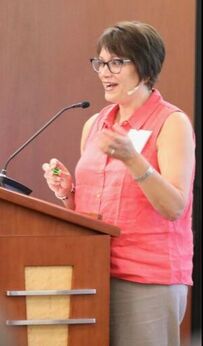
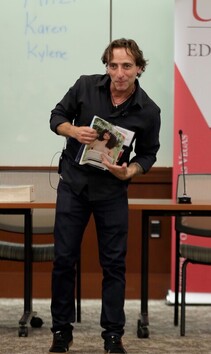
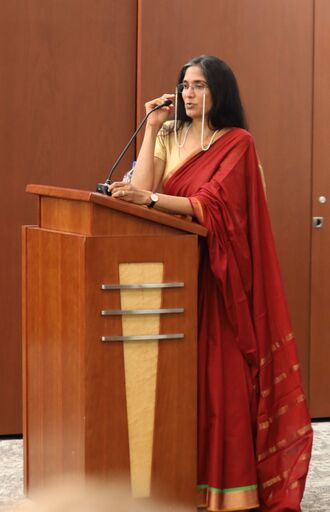
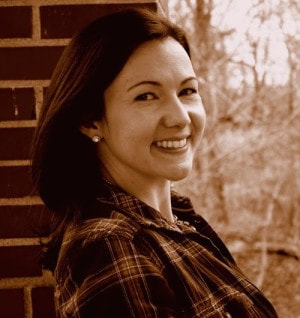

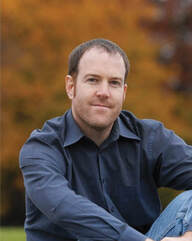

 RSS Feed
RSS Feed